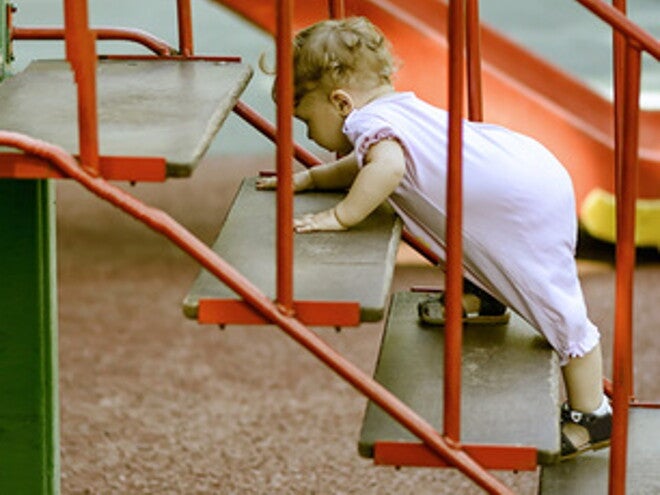
Physical Activity and Child Health
What are the benefits of sports for children? How can you encourage your child to practice sports?
Q1: What are the benefits of sports for children? How can you encourage your child to practice sports?
Sports contribute to:
• Strengthening bones and muscles and thus their kinetic abilities
• The discovery of their body and vital organs' fatigue, and how to resist it
• Reducing the rate of obesity, diabetes and other diseases
• Self-entertainment and increased self-confidence, thus enjoying a better feeling overall
• Teaching them to live within a group, developing their relationship with other children and controlling their aggressive temper and selfishness
• Learning how to set a target, as well as initiative and commitment
• Getting them out of their isolation and loneliness
• Removing laziness and lethargy of mind and body and therefore activating intelligence. From here came the wisdom of "a sound mind in a sound body".
Exercising a sport means that your child participates in his favorite activity, or even enjoys playing for 15 minutes continuously several times during the day, so that this totals approximately an hour at least every day.
The physical activity must fit the child's age, and before exercising any kind of sport, we must monitor the child and be reassured of his general health condition.
One of our most important tasks as parents is to encourage our children to practice sports and to reduce the number of hours they spend on TV or tablets.
All you do is reflected in your child's way of behaving. So be active to become a good example.
If it was possible to go to a nearby place walking instead of using the car, do not hesitate.
At home, you can put some music and dance or jump with him following the rhythm.
Make the weekend a time for him to expect with enthusiasm - an active and fun day with the family, when you can go swimming or cycling or going to the park to slide and play with the ball.
Put a daily routine for you and your child to walk or practice sport together.
Let your child help you in your daily routine tasks as this teaches him a sense of responsibility and makes him move inside the house.
Let your child practice sports at the pace that suits him. Do not push or force him to do something if he is not willing to do it.
• In this context, parents must let the child try out several activities until he can determine the activity he prefers. It is known that the child is not born as a sports lover, but of course, he enjoys a certain skill that we should try to explore.
• At a small age, we cannot distinguish between sports for boys and others for girls. So your child should be supported regardless of the sport he chooses.
Q2: What are your child's nutrient needs when practicing sport?
The child has additional nutritional needs during exercise as he needs more energy. Here are some essential nutrients that play an important role in your child's sport and physical performance:
Starch: Starches are considered the primary source of energy for the body and should make up about half of your child's intake of food. His nutrients must also contain the slow absorption starches which are found in bread, pasta, rice, potato and cereals. These elements preserve the sugar balance in the blood and allow it to become a slow and constant source of energy necessary for the practice of sports.
Protein: Sports activities help the body build muscle, so your child needs protein. He needs about 1-1.2 grams of protein per kilogram of his weight, which can be secured if his nourishment contains 10-15% of proteins. Your child should also get protein from various sources (plant and animal). So his nourishment should not be limited to plant sources only (beans and starches) but he must eat meat, eggs, milk and dairy products. If your child has, for example, a cup of specialized growing-up milk and one egg for breakfast, then eats vegetables with meat and rice for lunch, and finally eats a sandwich of cheese for dinner, he would have received the full daily requirement of protein.
Fats should make up 25-30% of the overall diet. Sports increase the burning of body fat, especially during simple or moderate efforts like those children exert constantly. Hence, your child needs a moderate amount of fats, especially from plant sources such as olive oil, olives, nuts and avocados.
Tips for your sporty child:
• Provide him with his meal two or three hours before practicing sport.
• Give him water during and after exercise to keep his body hydrated.
Good tip: Giving your child a snack an hour before exercise helps him avoid feeling hungry and gives his muscles strength. A cup of specialised growing-up milk with a banana forms a wonderful meal before exercise as it provides energy, vitamins and minerals, and hydrates for more vitality while practicing sports activities.




















